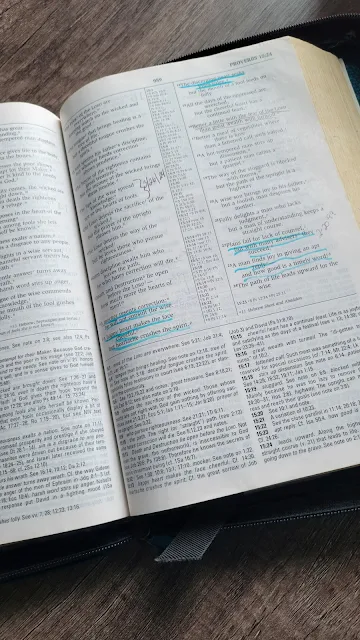The Bible stands as our sole guide. It lacks nothing;
there's no need to seek guidance elsewhere. If we think we require an external
philosophy or new theory to solve emotional issues, we're essentially
suggesting that God isn't enough, that He's untruthful and unreliable. This
perspective reveals our stance on salvation, scripture, and our valuation of
God Himself. To deny the sufficiency of the Bible implies that God, in His
entirety, isn't sufficient to meet our needs. It disregards the instances where
God provided what we needed, placed guides in our paths, and offered Himself
through Jesus to restore our relationship with Him.
Returning to 2 Peter 1:3-4, I'm reminded that God has
equipped us with everything necessary for life and godliness through our
knowledge of Him, which we attain solely through the scriptures. From the
moment He inspired the recording of scripture, God has provided direction for
living fully and godly. The Bible doesn't rely on hidden knowledge for
salvation or living; it's written plainly, comprehensively, and with clarity.
Every word we need for salvation, obedience, life guidance, and trust in God
has been provided. There are no omissions; God has given us everything
required, ensuring we need not worry about what comes next. Revelation 22:18
affirms the completeness of the Bible.
However, sufficiency doesn't imply exhaustiveness. While the
Bible won't teach me how to fix a stuck shower knob, it will instruct me on
responding to frustration and anger constructively. It teaches us to pray, seek
help, and handle challenges with patience and wisdom. The Bible offers life
examples, showing how people endured abuse, persecution, and responded to
adversity, illustrating God's faithfulness. Romans 8:28 assures us of God's
unwavering presence and involvement in our lives.
Ultimately, our foundation matters. Will we build our lives
on the Bible or secular theories? Though both may share basic principles, they
apply them differently. The Bible provides holistic guidance, addressing habits
and heart transformation, while secular counseling may focus solely on behavior
modification. We can approach Scripture confidently, knowing it offers
relatable and understandable guidance, fostering a conversational relationship
with God.
Our true identity isn't found in self-made perceptions or
achievements but in Christ and His redemptive work. Despite being born into
sin, Christ's sacrifice grants us assurance of our relationship with God. We're
adopted into God's family, yet we must acknowledge our sinful nature and await
our ultimate restoration in Heaven.




